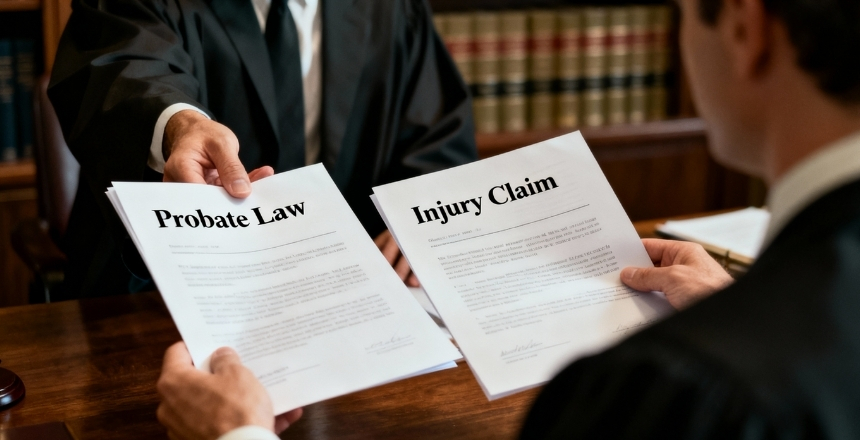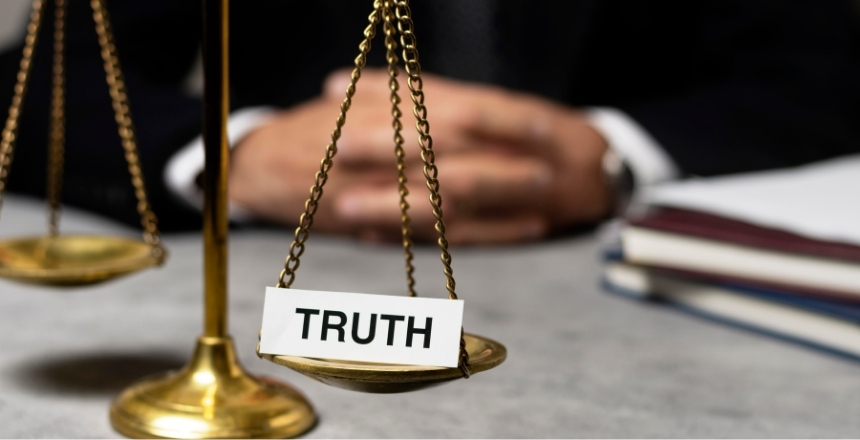When accidents strike—whether from car crashes, slip-and-falls, or workplace injuries—the path to justice often hinges on one critical question: Who is legally responsible? Proving liability is the linchpin of personal injury law, but it’s a nuanced process that demands expertise, precision, and an unwavering commitment to the truth.
At Warrior Injury Law, our attorneys specialize in dissecting complex cases for clients across Washington, including Tacoma, Seattle, Federal Way, and beyond. In this blog, we’ll unpack how liability is proven, the strategies that win cases, and why partnering with a skilled Seattle personal injury lawyer can make all the difference.
What is Legal Liability?
Legal liability determines who is financially and legally responsible for harm caused by careless or intentional actions.
In personal injury cases, establishing liability hinges on four foundational elements:
- Duty of Care: A defendant should have owed the plaintiff a legal obligation to act reasonably. For example, drivers need to obey traffic laws, and property owners must maintain safe premises.
- Breach of Duty: The defendant cannot uphold this obligation through action or inaction.
- Causation: The breach directly caused the plaintiff’s injuries.
- Damages: The plaintiff suffered tangible losses, including medical expenses, lost income, or pain and suffering.
Liability can arise from various scenarios:
- Negligence: The most common claim involves failures like distracted driving or poor property maintenance.
- Intentional Torts: Deliberate acts such as assault.
- Strict Liability: This applies in cases like defective products, where the fault is irrelevant.
A Tacoma Personal Injury Attorney might handle a case where a store owner neglected to fix a broken staircase, leading to a customer’s fall. Additionally, a Personal Injury Attorney could address a multi-car collision caused by a driver running a red light.
Gathering Strong Evidence: Building an Irrefutable Case
Evidence transforms a claim from a mere allegation into a compelling narrative. At Warrior Injury Law, our attorneys prioritize meticulous evidence collection, recognizing that every detail matters.
Key types of evidence include:
- Medical Records: Detailed documentation linking injuries to the incident, including diagnoses, treatment plans, and prognoses.
- Photographic and Video Evidence: High-resolution images of accident scenes, vehicle damage, or hazardous conditions.
- Expert Testimony: Specialists such as accident reconstructionists, engineers, or medical professionals who validate claims.
- Financial Documents: Pay stubs, tax returns, and invoices to quantify lost wages and future costs.
Challenges often arise in preserving evidence. Surveillance footage may be overwritten, witnesses’ memories can fade, and physical evidence might deteriorate. A skilled Federal Way Personal Injury Lawyer knows how to act swiftly issuing subpoenas, securing camera footage, and collaborating with experts to reconstruct events.
The Difference Between Weak and Strong Evidence:
| Weak Evidence | Strong Evidence |
| Vague witness recollections | Signed, detailed witness affidavits |
| Incomplete medical records | Comprehensive reports from treating physicians |
| Blurry or updated photos | Time-stamped, geotagged images |
Without robust evidence, even legitimate claims risk dismissal.
The Role of Witness Testimonies: Voices That Strengthen Your Case
Witnesses add credibility, clarity, and context. Their accounts can corroborate timelines, challenge false narratives, and highlight negligence. Attorneys often rely on:
- Eyewitnesses: Bystanders, passengers, or other drivers who observed the incident.
- Expert Witnesses: Professionals who explain technical details, such as a biomechanical engineer analyzing crash forces.
- Character Witnesses: Individuals who attest to the plaintiff’s integrity, health, or lifestyle before the accident.
Witness testimonies become indispensable in cases involving disputed liability. For instance, a Renton Personal Injury Lawyer might use a coworker’s testimony to prove that an employer ignored repeated safety complaints, leading to a preventable injury.
The Importance of Police Reports: An Objective Third-Party Account
Police reports provide an impartial snapshot of the incident. Officers typically document:
- Contact information for all parties and witnesses.
- Observations about road conditions, weather, or visible injuries.
- Citations issued (e.g., for speeding or failure to yield).
While not conclusive, these reports carry significant weight with insurers and judges. A Bellevue Personal Injury Lawyer might leverage a report to demonstrate that a driver admitted fault at the scene, even if they later retract the statement.
Discrepancies in police reports aren’t uncommon. Skilled attorneys can challenge inaccuracies through additional evidence, witness statements, or expert analysis.
Proving Negligence in Court: Connecting the Dots
Successfully arguing negligence requires methodically linking each element of liability. Attorneys must:
- Establish Duty: Demonstrate the defendant’s obligation (e.g., a manufacturer’s duty to ensure product safety).
- Highlight Breaches: Show how the defendant’s actions deviated from reasonable standards (e.g., a landlord ignoring mold growth).
- Prove Causation: Use medical experts to confirm injuries resulting directly from the incident.
- Quantify Damages: Present economic and non-economic losses, from hospital bills to emotional trauma.
A Kent Personal Injury Attorney might handle a case where a distracted driver caused a rear-end collision, relying on phone records to prove the driver was texting.
How Settlements Are Negotiated: Balancing Patience and Pressure
Most cases settle out of court to avoid the unpredictability of trials. Negotiations involve:
- Calculating Fair Compensation: Covering immediate costs (medical bills, repairs) and future needs (ongoing therapy, lost earning potential).
- Leveraging Evidence: Using compelling proof to counter lowball offers.
- Mediation: A neutral party facilitates discussions to resolve disputes amicably.
Factors influencing settlements include injury severity, insurance policy limits, and jurisdictional norms. For example, a Seattle Personal Injury Attorney might negotiate differently in a pedestrian accident case than a Tacoma Personal Injury Attorney handling a maritime injury near the port.
When to Go to Trial: Weighing Risks and Rewards
Trials are pursued when settlements fail to reflect the claim’s true value. Attorneys may advise litigation if:
- The defendant denies responsibility outright.
- The evidence overwhelmingly supports the plaintiff’s version of events.
- Insurers refuse to cover long-term needs, such as lifelong disability care.
Preparing for trial demands thoroughness—crafting persuasive arguments, prepping witnesses, and anticipating counterarguments. A Federal Way Personal Injury Lawyer might collaborate with accident reconstructionist to create visual aids for the jury.
Choosing the Right Lawyer: Qualities That Matter
Selecting an attorney is pivotal. Key considerations include:
- Specialization: Focus on personal injury law, not general practice.
- Resources: Access to investigators, medical experts, and cutting-edge technology.
- Local Insight: Familiarity with regional courts, judges, and laws.
For example, a Renton Personal Injury Lawyer understands local building codes that might impact a premises liability claim, while an Auburn Personal Injury Attorney knows how agricultural equipment regulations apply to farm-related injuries.
Red Flags to Avoid:
- Lack of communication or transparency.
- Pressure to settle quickly without exploring options.
- Vague promises without explaining strategy.
Why Choose Warrior Injury Law
At Warrior Injury Law, we blend legal acumen with compassionate advocacy. Our approach includes:
- Tailored Strategies: Recognizing that no two cases are alike.
- Client-Centered Communication: Regular updates and clear explanations.
- Community Commitment: Deep roots in Washington’s cities, from Bellevue to Kent.
Whether navigating a complex claim in Tacoma or seeking justice in Seattle, our attorneys bring localized knowledge and relentless dedication to every case.
Warrior Injury Law: Empowering Your Journey to Justice
Proving liability is more than a legal exercise—restoring dignity and stability to those wronged by negligence. Victims may get the compensation they deserve with the right evidence, expertise, and advocacy. If you’re in Federal Way, Renton, Auburn, or any Washington community, remember you don’t have to face this journey alone.
If you or a loved one has been injured due to someone else’s actions, trust Warrior Injury Law to fight for your rights. Our Seattle Personal Injury Attorneys, Tacoma Personal Injury Lawyers, and dedicated teams across Federal Way, Renton, Kent, Auburn, and Bellevue are here to guide you. Contact us today at (253) 927-7467 for a free, no-obligation consultation. We work on a contingency basis—no fees unless we win.











